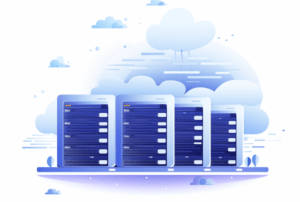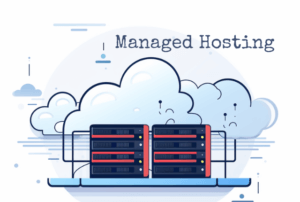Virtual Private Servers & Who Needs One
As websites grow in complexity and traffic, the need for more reliable and scalable hosting solutions becomes paramount. This is where Virtual Private Servers (VPS) come into play. A VPS is a virtual server that mimics a dedicated server within a shared hosting environment. In other words, a VPS is like having your own little piece of a big computer where your website can live, run fast, and stay safe, without sharing space with others’ websites.
It offers the perfect balance between cost-efficiency and performance, making it an ideal choice for websites poised for growth. This article explores what a VPS is, its importance for larger websites, security features, cost considerations, and more.

What is a Virtual Private Server (VPS)?
A Virtual Private Server (VPS) is a hosting solution that provides virtualized server resources on a physical server. Unlike shared hosting, where multiple websites vie for the same resources, a VPS gives you dedicated server resources. This means you get a specified amount of CPU, RAM, disk space, and bandwidth. The key advantage of a VPS is its ability to offer increased control, customization, and scalability compared to shared hosting, at a lower cost than a dedicated server.
Why Larger Websites Need VPS Hosting
Scalability: As websites grow, so do their resource requirements. A VPS can easily scale to accommodate increasing traffic, ensuring smooth website performance even during peak times.
Control and Customization: Larger websites often have specific hosting needs. With VPS hosting, you get root access to the server, allowing you to install custom software and make server configurations to meet your website’s unique requirements.
Improved Performance: Dedicated resources mean your website can load faster and handle more concurrent users. This is vital for larger websites, where even a slight delay in loading time can significantly impact user experience and SEO rankings.
Reliability: VPS hosting offers better uptime and reliability than shared hosting. Since resources are not shared, spikes in traffic on other websites do not affect your website’s performance.
How Secure are VPSs?
Security is a critical concern for any website, and VPS hosting offers several advantages in this area:
Isolation: Your VPS is isolated from other users on the same physical server, reducing the risk of unauthorized access.
Custom Security Measures: With root access, you can implement custom firewalls, install security software, and configure server settings to enhance security.
Regular Updates and Monitoring: Many VPS providers offer managed services, including regular software updates and security monitoring, further safeguarding your website.
Despite these benefits, it’s essential to understand that no system is entirely immune to threats. The security of a VPS also depends on the user’s practices, such as using strong passwords, keeping software up to date, and adhering to best security practices.

Are VPSs Worth the Money?
Determining the cost-effectiveness of a VPS depends on your website’s needs:
For larger websites or those experiencing growth, a VPS is undoubtedly worth the investment. It offers a balance between performance, control, and cost.
VPS hosting can be more cost-effective than dedicated hosting while providing similar benefits, such as dedicated resources and enhanced security.
The scalability of a VPS means you only pay for what you need, allowing for efficient budget management.
When considering a VPS, it’s crucial to evaluate your website’s specific requirements, anticipated growth, and the level of control you wish to have. For many businesses, the benefits of improved performance, reliability, and security make VPS hosting a valuable investment.
Choosing the Right VPS Provider
Selecting the right VPS provider is vital to ensuring that your website can grow and remain secure. Consider the following factors when choosing a provider:
Reputation and Reliability: Look for providers with a strong reputation for uptime and customer support.
Scalability Options: Ensure the provider offers easy scalability options to accommodate your website’s growth. As your website grows, your VPS can grow with it. You can add more resources as you need them. It’s similar to upgrading your Lego set – as you want to build bigger things, you just add more Legos.
Security Features: Evaluate the security measures in place, including firewalls, monitoring services, and backup solutions. With a VPS, you have better security options compared to shared hosting. You can add firewalls, security scans, and more to keep your site safe. It’s like having your own security guard for your home.
Pricing and Plans: Compare plans to find one that meets your needs without unnecessary extras that inflate costs. VPS hosting costs more than shared hosting because you’re getting more resources and better performance. It’s like paying more for a bigger, private room in a house instead of sharing a small room with others. However, it’s usually less expensive than renting the whole house (dedicated server hosting).
Virtual Private Servers represent a significant step up from shared hosting for websites that are growing in size and complexity. They offer the performance, control, and scalability necessary to support larger websites, with security features that can be customized to meet specific needs.
While VPS hosting represents a higher investment than shared hosting, its benefits in terms of reliability, performance, and security make it a cost-effective choice for businesses looking to grow their online presence. Choosing the right VPS provider will ensure that your website can scale smoothly while maintaining high performance and security standards.






